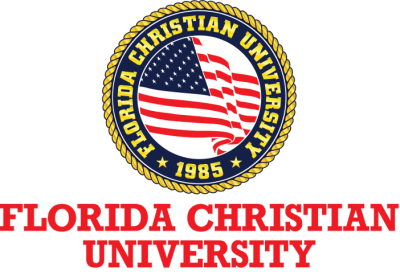
Bachelor of Arts in Counseling
Florida Christian University

Key Information
Campus location
Orlando, USA
Languages
English, Portuguese, Spanish
Study format
Distance Learning
Duration
3 - 4 years
Pace
Full time
Tuition fees
USD 12,056 / per year *
Application deadline
Request info
Earliest start date
Request info
* Total Price
Scholarships
Explore scholarship opportunities to help fund your studies
Introduction
Bachelor of Arts in Counseling - 126 credits
The bachelor's degree in Counseling is a program designed to immerse the student in the development of human personalities and the study of current theories on group dynamics and their application in different situations. Students receive extensive training in the field of Counseling combined with human development courses, backed by content from other areas that allow the student to develop tactical skills of interpersonal intervention. The diagnosis and/or treatment of physical problems will be referred to the appropriate medical practitioner.
Curriculum
General Education Courses: 45 Credits
- AD1410 Humanity in Global Times
- BI1101 Introduction to Study of the Bible
- CH3013 Communication and Human Development
- CM2101 Composition I
- CM2108 Effective Communication
- EC4320 Economy Theory
- ED1109 Study Methods & Techniques
- PS1304 General Psychology
- PS4101 Introduction to Social Psychology
- RG2101 Church History
- SC2101 Survey of American History
- SC2102 Philosophical Thinking
- SC2205 Study of Man and His Culture
- SC3204 Biological Science
- TH3406 Anthropology
Counseling Courses: 63 Credits
- CC1521 Temperaments I
- CC1522 Temperaments II
- CC2503 Reconciliation of Broken Marriages
- CC2539 Biological Bases of Substance Abuse
- CC2552 Personality Disorders
- CC3304 Premarital Counseling
- CC3401 Family Counseling
- CC3439 Counseling with Seniors
- CC3507 Christian Counseling in Times of Crisis
- CC3520 Personality Theory: Self Esteem
- CC3523 Documentation and Files
- CC3532 Cognitive Therapeutic Techniques in Counseling
- CC4518 Play Therapy
- CC4543 Counseling the Bi-Polar
- CC4561 Counseling the Divorced
- CC4567 Group Dynamics
- CC4577 Psychology of Behaviorism in Christian Counseling
- CC4588 Family Systems, Functional/Dysfunctional
- PS4307 Biblical Psychology
- PS4445 Faith-Based Approaches to Clinical Intervention
- SW4130 Family Groups and Social Links
Electives (6) – 18 Credits
Objectives
The student completing the Bachelor of Arts degree in Counseling will be able to:
- Integrate Christian principles in critical thinking and decision making.
- Identify effective interpersonal relationship skills.
- Summarize major counseling, developmental, and personality counseling theories.
- Apply psychological theories to life situations.
- Be able to correctly use composition skills, grammar, and punctuation.
- Be able to integrate philosophical, literary and historical knowledge into a Biblical worldview.
Entrance Requirements
- High School Diploma or GED.
- Enrollment Agreement filled and signed. If a student is under 18 years of age, a parent or guardian must sign the Enrollment Agreement.
- Diplomas of previous studies.
- Official Transcripts of previous studies.
- Copy of official identification.
- Debit Authorization (if desired).
- A passport-type photo.
- Pastoral Ordination if it were the case.
- Ministerial curriculum, copies of any certificate of courses took in related areas, and Ministry ordination, if they are older than 30 years and want to claim the credits for Life Experience.
Steps to Enroll
- Application: Complete the Enrollment Agreement sent by e-mail by the Student Services Department of FCU, sign and scan the document.
- Documents: Send the Enrollment Agreement to [email protected] attached with all the documents necessary or send them by mail.
- Evaluation: After receiving the Enrollment Agreement and the copies of the requested documents, verification will be made by the corresponding departments. FCU will contact the students if additional documents are required. Transcripts must be official and sent directly from the university in a sealed envelope.
- Payment: If the student completes the Agreement and submits all required information, the next step is to pay the $260 Application and Enrollment fee, which is applicable to any program. (Application $40 & Registration & Processing Fee $110.00 – are not refundable + USD $110.00 Evaluation – refundable).
- Enrollment: Should the student’s Agreement require additional analysis by the Institution, the student will be informed immediately. After being approved, the student will be effectively enrolled and will receive a welcome letter, the Catalog, and the Student Handbook. After that, the online student will receive an e-mail with information on how to access the Student’s Portal and the template to be used their assignments. On-campus students will receive their class schedule. The Student ID Card will be sent by mail. Now the student is ready to begin their classes!
Mode of Study
Three-Course Delivery Methods: Face-to-Face/Synchronous/Fully Online (Student's Portal).
4th Method for those who live near the headquarters or a branch of FCU: Hybrid.
Classes start immediately after enrollment, on an ongoing basis. For online courses, students take a minimum of (1) one online course a month. For on-campus courses, invitations are sent out and students confirm their presence a minimum of (2) two weeks prior to the course date.